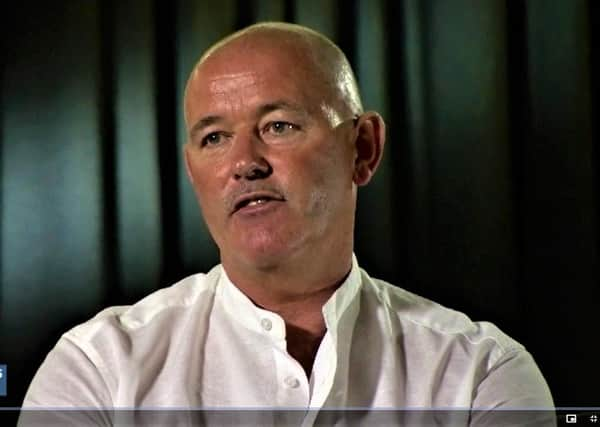No comment from new NI fire chief Peter O’Reilly as bomb inquiry evidence mounts


Peter O’Reilly, the man who was appointed to lead the Province’s firefighters in August this year, had been in charge of fire crews in Manchester on the night of the attack, but they did not arrive at the scene for about two hours.
It has been reported that, once crews finally did arrive, the fire brigade’s contribution consisted of a mere 12 crew members – about the same number that would be sent to a standard domestic blaze.
Advertisement
Hide AdAdvertisement
Hide AdAmong the evidence presented in this week’s inquiry hearings was testimony about the final moments in the life of John Atkinson, a healthcare worker aged 28, from Bury.
He had been six metres away from the Islamist extremist Salman Abedi when the 22-year-old detonated a suicide vest, ultimately claiming 22 lives as well as his own on May 22, 2017.
The explosion was at 10.31pm. Just before 11pm a police body-worn camera captured Mr Atkinson telling a policewoman: “I’m gonna die.”
An officer from the British Transport Police was also on hand, and tried to help him as he told her he didn’t want to die.
Advertisement
Hide AdAdvertisement
Hide AdThis officer told the inquiry on Thursday: “We realised no-one was coming to help us and it was better to get people downstairs.”
With no stretcher available, they tried moving him using a display board and a bit of metal fence. His handlers eventually got him downstairs to a casualty clearing area, but then he waited another 20 minutes as ambulances queued outside before going into cardiac arrest at 11.47pm.
He was taken to hospital but pronounced dead at 12.24am.
Cardiology expert Dr Paul Rees told the inquiry: “If it had been possible to extract him from the scene and deliver him safety to a pre-alerted trauma team with access to extensive blood products before cardiac arrest ensued, then survival might have been possible.”
The fire service had specialist teams at its disposal, with stretchers and enhanced first aid units.
Advertisement
Hide AdAdvertisement
Hide AdBut some of the firefighters under Mr O’Reilly’s command, who had been so close they heard the bomb detonate, were instead instructed to drive three miles in the opposite direction, the inquiry had been told earlier.
Mr O’Reilly has previously apologised for the failings of the Manchester fire brigade that night.
Meanwhile the Northern Ireland fire brigade was asked if it or Mr O’Reilly himself had anything to say in light of this week’s inquiry evidence.
“It would be inappropriate for NI Fire & Rescue Service to comment,” came the response.
Advertisement
Hide AdAdvertisement
Hide Ad——— ———
A message from the Editor:
Thank you for reading this story on our website. While I have your attention, I also have an important request to make of you.
With the coronavirus lockdown having a major impact on many of our advertisers — and consequently the revenue we receive — we are more reliant than ever on you taking out a digital subscription.
Advertisement
Hide AdAdvertisement
Hide AdSubscribe to newsletter.co.uk and enjoy unlimited access to the best Northern Ireland and UK news and information online and on our app. With a digital subscription, you can read more than 5 articles, see fewer ads, enjoy faster load times, and get access to exclusive newsletters and content. Visit https://www.newsletter.co.uk/subscriptions now to sign up.
Our journalism costs money and we rely on advertising, print and digital revenues to help to support them. By supporting us, we are able to support you in providing trusted, fact-checked content for this website.
Ben Lowry
Acting Editor